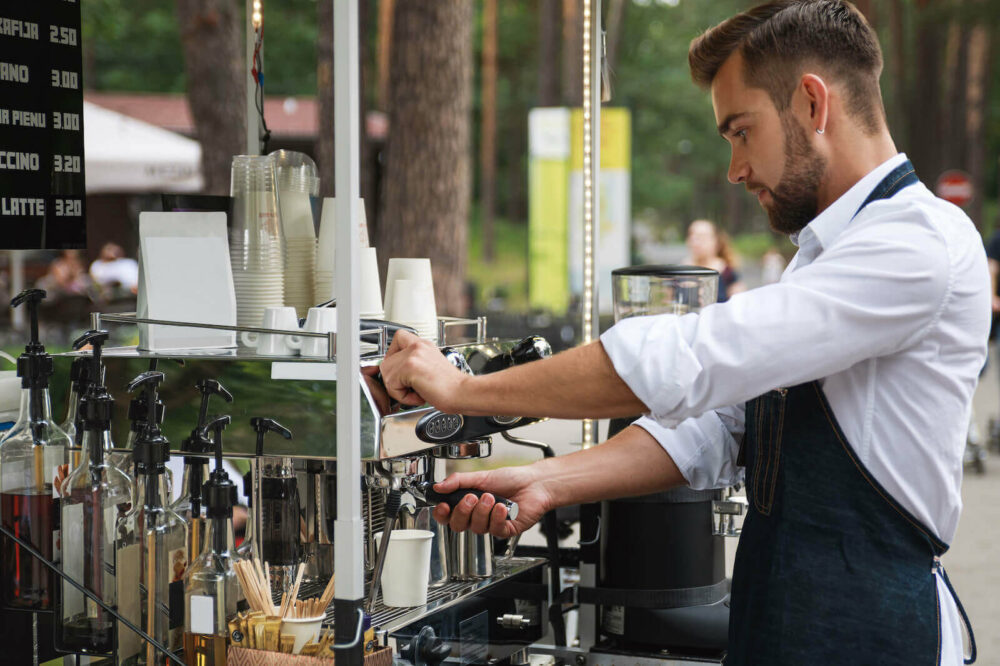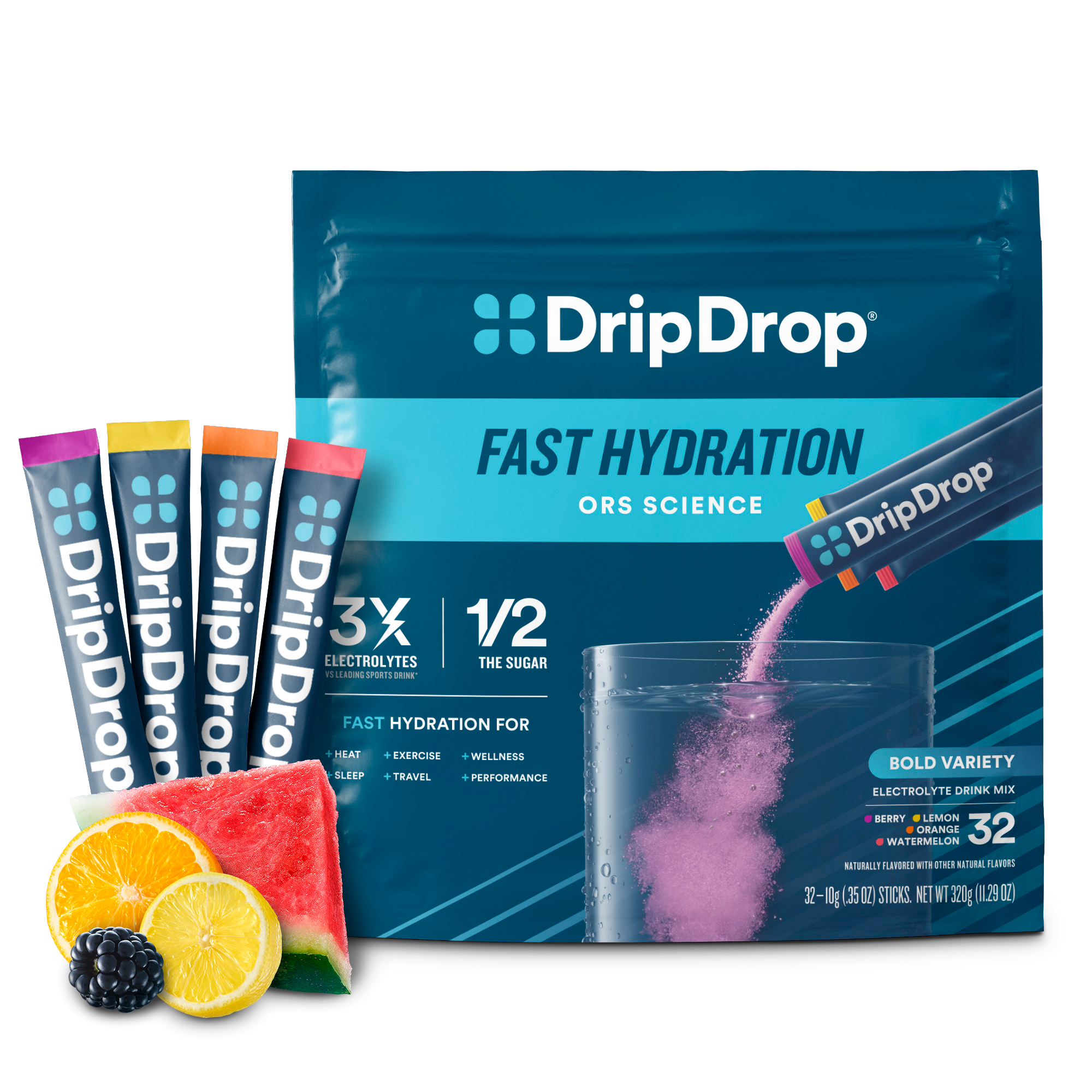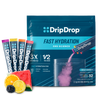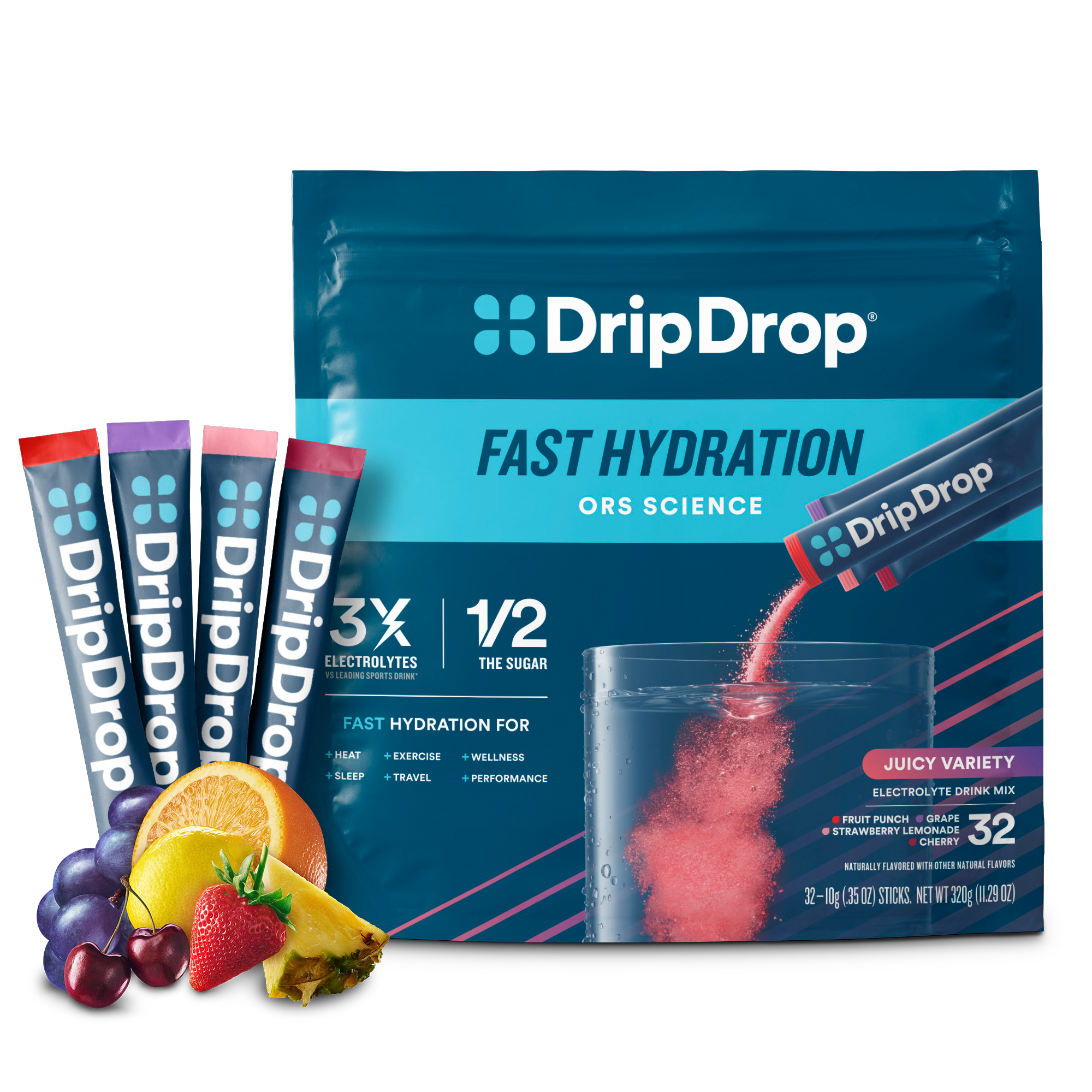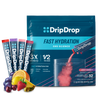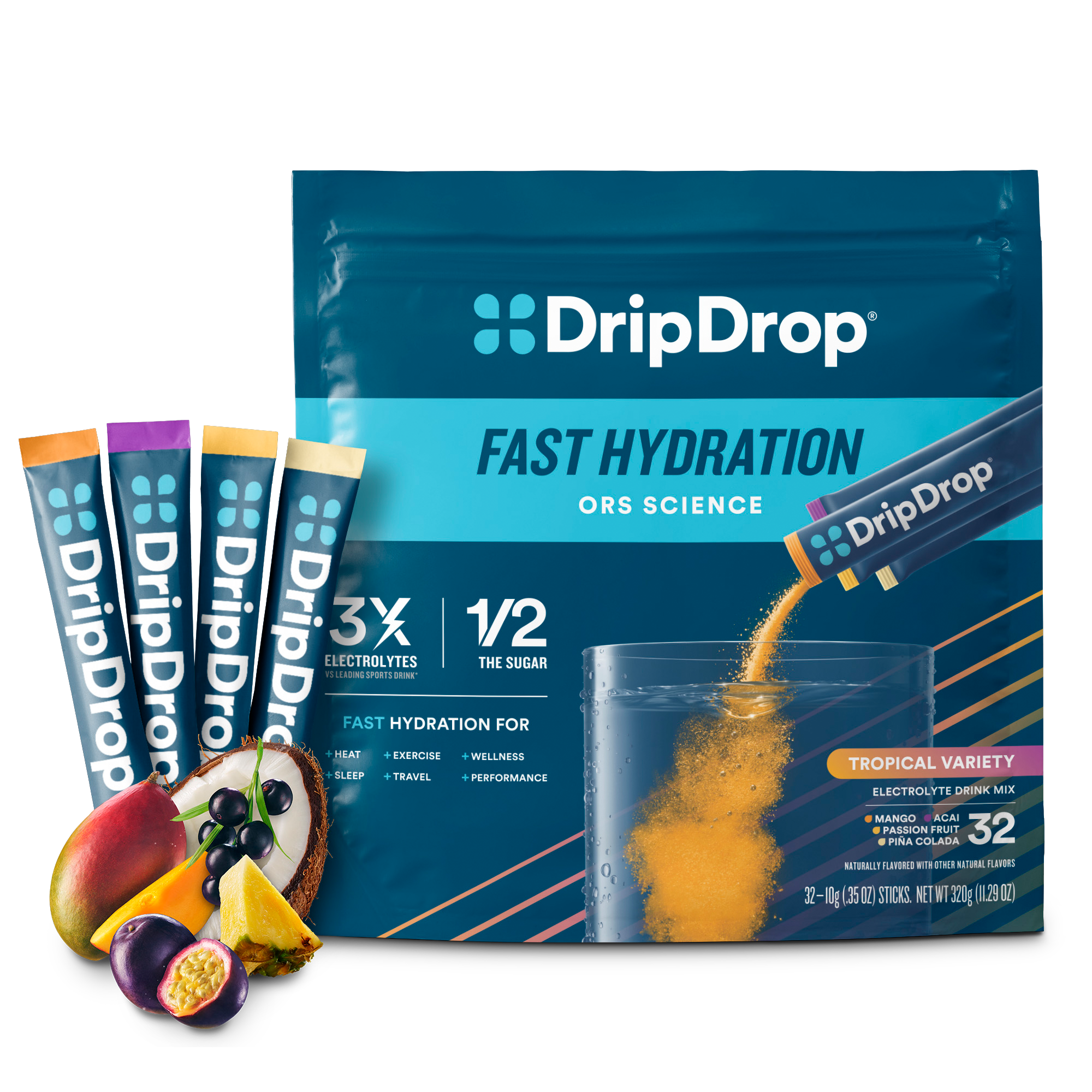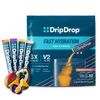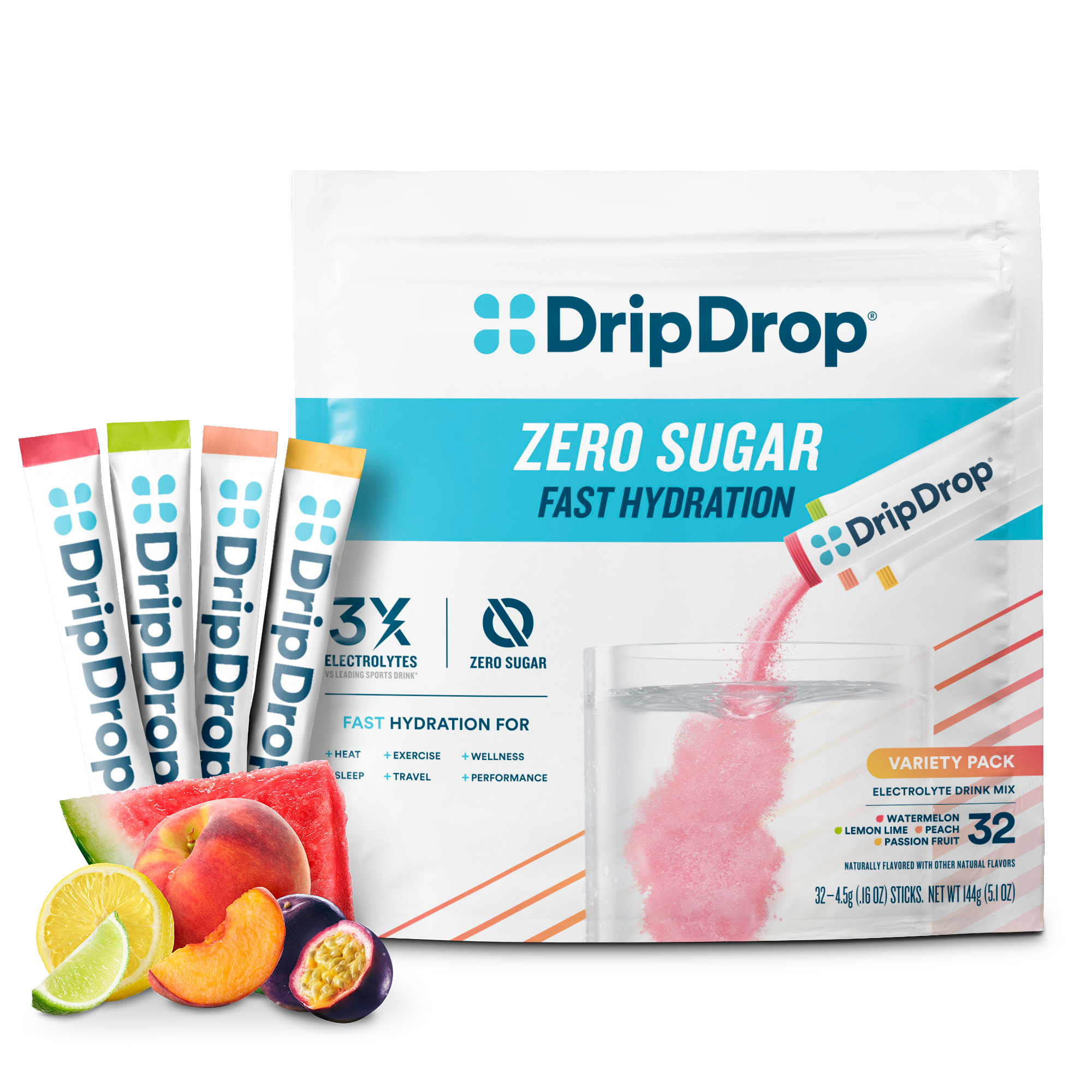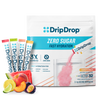What is caffeine, and is there such a thing as caffeine dehydration?
For starters, caffeine is a naturally occurring plant compound that acts as a stimulant when consumed. It’s used by people all over the world for its effects on alertness. You’re likely familiar with a variety of caffeinated beverages and may be aware that drinking coffee is the most popular source of caffeine.
So how is caffeine related to hydration? It’s helpful to first explain that caffeine can have a diuretic effect. A diuretic is any substance that stimulates urine production in the kidneys, causing a person to urinate more frequently, expelling both water and electrolytes.
While caffeine is a natural diuretic, the resulting increase in urine output may or may not increase the risk of dehydration. The answer will depend on an individual’s caffeine intake, such as how many cups of coffee they drink per day, as well as overall fluid intake.
Read on to learn more about the effects of caffeine, the most common caffeinated beverages, and how caffeine relates to hydration, including caffeine dehydration.
Effects of Caffeine
Caffeine is a central nervous system stimulant. You have most likely felt its effects from drinking coffee, tea, soda, or sports drinks, or even eating chocolate. It tends to have an energizing effect, though individuals can become desensitized to it, and it’s known to be physiologically addictive. It can also interfere with sleep.
Caffeine may have some health benefits when consumed in moderation. The polyphenols in coffee may be beneficial for disease prevention, though studies show contradictory results. One study found that low doses of caffeine prior to exercise can improve alertness, mood, and cognitive processes both during and after exercise. But high or even moderate amounts of caffeine consumption prior to exercise were associated with negative side effects.
Additionally, it has a mild diuretic effect, but this does not necessarily mean it’s dehydrating. Caffeinated beverages can contribute to daily fluid intake and affect your hydration status in the same way other beverages do.
While caffeine does increase the need to urinate, low to moderate amounts of caffeine do not appear to have a dehydrating effect and most likely won’t cause caffeine dehydration. That said, excessive caffeine intake can alter fluid balance and may have other negative side effects as well.
Caffeinated Drinks
The main source of caffeine in our diets is caffeinated drinks, or any drink containing caffeine. We are already familiar with some, but let’s take a closer look at them.
Coffee
Coffee consumption worldwide far exceeds that of any other caffeinated drink. The caffeine content of a cup (8 oz) of regular coffee (or caffeinated coffee) is about 80-100 mg, though the exact amount may vary by variety of coffee. Espresso has even more caffeine per fluid ounce, instant coffee has a little less, and decaf coffee even contains some caffeine, about 2-15 mg per cup. This is a very small amount but still enough to warrant caution for those limiting caffeine consumption. In general, coffee drinkers may want to monitor their daily coffee intake.
Tea
Nearly all types of caffeinated tea are made from the same tea plant. Known as Camellia sinensis, it is an evergreen shrub native to east Asia. This plant produces black, green, or white tea, depending on how much the leaves have been oxidized. Black tea contains less caffeine than coffee but more than green tea.
Green tea in particular has been well-studied and shown to have health benefits. Tea can also be decaffeinated, though decaffeinated tea still contains a small amount of caffeine. Its caffeine content is similar to that of decaf coffee. Herbal tea, on the other hand, is naturally caffeine-free.
Sports Drinks
Some sports drinks contain caffeine. They also generally contain at least some electrolytes. However, sports drinks also tend to have too much sugar, more than is healthy, in order to make them taste better.
Soda
Similar to sports drinks, many sodas have caffeine added to them, around 22 mg per an average 8 oz serving, and many also come in sizes much larger than 8 oz. Unlike sports drinks, they do not usually contain electrolytes and have no health benefits. Soda and other sugar-sweetened beverages are linked to a variety of poor health outcomes, and this includes diet beverages with artificial sweeteners. For those who enjoy the taste, consuming sugar-sweetened beverages in moderation once in a while is likely safe, but they are one of the least healthy sources of caffeine.
Other Drinks With Caffeine
A variety of other plants naturally contain small amounts of caffeine, including cocoa beans (used to make chocolate), kola nuts, and yerba maté. In general, they contain substantially less caffeine than coffee or black tea and are unlikely to cause caffeine dehydration. However, those who are very sensitive to caffeine may want to avoid them.
When to Drink Caffeinated Beverages
Studies on the effects of caffeine have sometimes produced contradictory results. One reason for this is the wide variability in individuals’ physiological responses, consumption patterns, and individual preferences. Some people are extra sensitive to caffeine while others may not react at all. One study on voluntary caffeine consumption in rats identified three groups: high, medium, and low caffeine consumption. As with rats, so too are people varied in their caffeine intake.
When deciding what sort of caffeinated beverages to include or not include in your diet, it’s important to consider your personal circumstances and preferences. If you enjoy drinking coffee, having up to 3-4 cups of coffee per day appears to be safe and may even help your health. That said, pay attention to how you respond to it over time. Regular consumption can lead to addiction and desensitization.
Certain conditions can make negative side effects like caffeine dehydration more likely. Children and teenagers, women who are pregnant or breastfeeding, those who are sleep-deprived, and those who are taking certain prescription drugs or supplements may want to limit or avoid caffeine. As always, seek medical advice if you are unsure how much is safe for you.
When to Be Aware of Caffeine Dehydration
Although caffeine has a mild diuretic effect, naturally caffeinated drinks like coffee and tea may have similar hydrating qualities to other hydrating beverages. One study found that the diuretic effect of caffeine was actually negated by exercise, demonstrating the potential safety of using caffeine prior to exercise. The evidence of dehydration related to moderate caffeine consumption is fairly sparse.
However, individuals with certain medical conditions, those who know they are very sensitive to caffeine, and anyone at risk of dehydration may want to exercise caution. Caffeine dehydration can happen as a result of very high caffeine consumption. Moreover, caffeine is addictive, and addiction can lead to abuse. It can even lead to caffeine intoxication, a rare but potentially deadly condition.
Use DripDrop to Help Remedy Dehydration
When you become dehydrated, either as a result of caffeine dehydration or for any other reason, drinking water alone is not enough to replenish your fluid loss. An oral rehydration solution can replenish needed fluids and nutrients quickly.
If you’re concerned about your caffeine consumption, and the possibility of developing dehydration, consider switching out one of your caffeinated beverages of choice for a tasty (and hydrating) DripDrop.
The convenient packaging allows you to have DripDrop wherever you need it, whenever you need it. Keep DripDrop around for fast relief any time you become dehydrated. Choose from a variety of flavors, such as Watermelon, Fruit Punch, and Lemon. Additionally, for those looking for dehydration relief without the sugar, DripDrop offers DripDrop Zero, a zero sugar option. Get started with our most popular multi-flavor pouch for dehydration relief fast. Or, learn more about how you can save up to 25% on every purchase when you subscribe.

